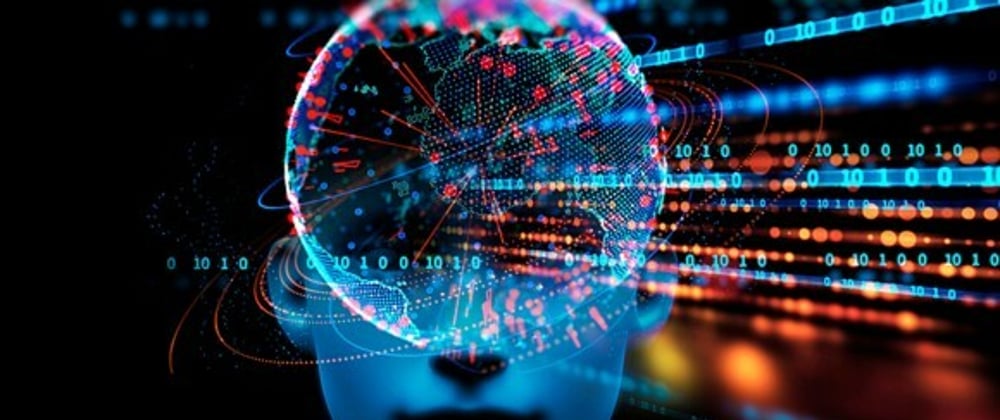The restaurant industry is constantly evolving, and in recent years, the adoption of artificial intelligence (AI) in online ordering systems has been a game-changer for many businesses. From streamlining operations to improving the customer experience, AI has the power to revolutionize the way restaurants do business.
However, with any new technology comes a set of ethical considerations. In this blog post, we'll take a deep dive into the benefits of using AI in online ordering systems for restaurants, as well as the potential ethical concerns that come with it.
By the end of this post, you'll have a better understanding of how AI is transforming the restaurant industry and how you can use it to your advantage.
1. Streamlining operations
Streamlining operations is one of the major benefits of using AI in free online ordering systems for restaurants. AI can help automate tasks such as inventory management and order processing, freeing up time and resources for restaurant owners and staff.
Here are a few specific examples of how AI can streamline operations in a restaurant setting:
Inventory management:
AI can be used to track and monitor inventory levels, alerting restaurant staff when supplies are running low and suggesting optimal restocking levels based on past sales data. This can help restaurants avoid running out of popular menu items and reduce waste.
Order processing:
AI can be used to automatically process orders as they come in, eliminating the need for manual data entry and reducing the risk of errors. This can help speed up the ordering process for both customers and staff.
Scheduling and staffing:
AI can be used to assist with scheduling and staffing by predicting demand based on past data and recommending the optimal number of staff members to schedule for a given shift. This can help restaurants save money on labor costs and ensure that they have enough staff on hand to handle busy periods.
There are many AI-powered tools and platforms available that can assist with these tasks, such as restaurant management software and inventory management systems. By implementing these tools, restaurants can take advantage of the efficiency and accuracy that AI has to offer.
2. Improving the customer experience
Improving the customer experience is another key benefit of using AI in online ordering systems for restaurants. AI can be used to personalize the ordering experience for customers in a variety of ways, including through personalized recommendations and personalized communication.
Here are a few examples of how AI can be used to enhance the customer experience:
Personalized recommendations:
AI can analyze a customer's past orders and preferences to suggest menu items that they are likely to enjoy. This can help restaurants upsell and drive additional sales, as well as improve the overall customer experience by offering personalized recommendations that are tailored to each individual customer.
Personalized communication:
AI can be used to send personalized emails or texts to customers, such as order confirmations, special offers, or birthday messages. This can help restaurants build stronger relationships with their customers and increase loyalty.
Chatbots:
Many online ordering systems include a chatbot feature that allows customers to ask questions or get assistance with their orders. These chatbots can be powered by AI, allowing them to handle a wide range of customer inquiries and provide quick, accurate responses.
By using AI to personalize the ordering experience for customers, restaurants can increase customer satisfaction and loyalty, leading to repeat business and positive word-of-mouth referrals.
3. Increasing efficiency
Increasing efficiency is another major advantage of using AI in online ordering systems for restaurants. AI can help restaurants save time and resources by automating tasks and reducing the need for manual labor. Here are a few specific ways in which AI can help restaurants increase their efficiency:
Automating tasks:
AI can be used to automate tasks such as inventory management, order processing, and scheduling, freeing up time and resources for restaurant staff. This can help restaurants operate more efficiently and reduce the risk of errors.
Reducing labor costs:
By automating tasks and reducing the need for manual labor, restaurants can save money on labor costs. This can be especially beneficial for restaurants that have a high volume of orders or operate in a location with a high minimum wage.
4. Improving efficiency through analytics:
AI can be used to analyze data such as sales trends and customer behavior to identify areas of the business that can be made more efficient. For example, AI could be used to identify the most popular menu items or the busiest times of day, allowing restaurants to better allocate resources and improve their bottom line.
Overall, using AI in online ordering systems can help restaurants save time, reduce labor costs, and increase efficiency, leading to potential financial benefits for the business.
5. Ethical considerations
As with any new technology, there are ethical considerations that come with using AI in online ordering systems for restaurants. Some of the main ethical concerns include issues of bias and privacy. Here are a few bullet points about how restaurants can address these ethical considerations:
Bias:
AI algorithms can sometimes exhibit bias, either due to the data they are trained on or the way in which they are programmed. It's important for restaurants to be aware of this and take steps to ensure that their use of AI is fair and unbiased. This could include regularly evaluating and testing their algorithms for bias, as well as seeking input from diverse stakeholders.
Privacy:
The use of AI in online ordering systems involves the collection and processing of customer data, which raises privacy concerns. It's important for restaurants to be transparent about how they are collecting and using this data and to provide clear explanations to customers about how their data will be used. Restaurants should also implement appropriate security measures to protect customer data and ensure that it is only used for the purposes for which it was collected.
By being aware of these ethical considerations and taking steps to address them, restaurants can ensure that their use of AI in online ordering systems is responsible and transparent.
Conclusion
In conclusion, the use of AI in online ordering systems for restaurants has the potential to revolutionize the way restaurants do business. From streamlining operations and improving the customer experience to increasing efficiency and reducing labor costs, AI has the power to transform the restaurant industry. However, it's important for restaurants to be aware of the ethical considerations that come with using AI, such as issues of bias and privacy, and to take steps to address these concerns.
Looking to the future, it's clear that AI will continue to play a major role in the restaurant industry. As the technology evolves and becomes more sophisticated, it's likely that we will see even more innovative ways in which AI is being used in online ordering systems. From personalized recommendations and personalized communication to advanced analytics and predictive modeling, the potential applications for AI in the restaurant industry are vast. It will be interesting to see how these trends develop in the coming years and how they will shape the way we order food online.







Top comments (0)